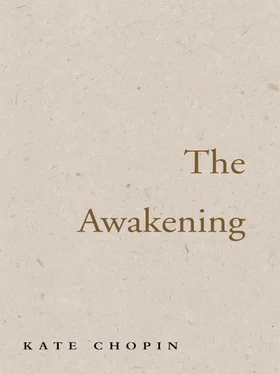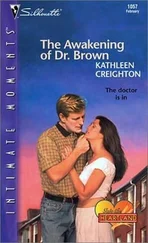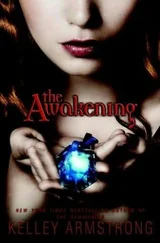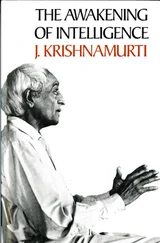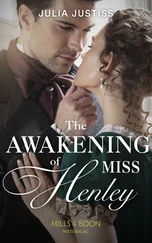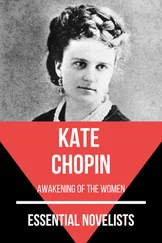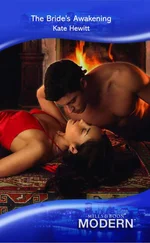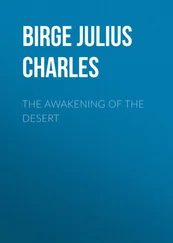Kate Chopin - The Awakening
Здесь есть возможность читать онлайн «Kate Chopin - The Awakening» — ознакомительный отрывок электронной книги совершенно бесплатно, а после прочтения отрывка купить полную версию. В некоторых случаях можно слушать аудио, скачать через торрент в формате fb2 и присутствует краткое содержание. Жанр: Современная проза. Описание произведения, (предисловие) а так же отзывы посетителей доступны на портале библиотеки ЛибКат.
- Название:The Awakening
- Автор:
- Жанр:
- Год:неизвестен
- ISBN:нет данных
- Рейтинг книги:3 / 5. Голосов: 1
-
Избранное:Добавить в избранное
- Отзывы:
-
Ваша оценка:
- 60
- 1
- 2
- 3
- 4
- 5
The Awakening: краткое содержание, описание и аннотация
Предлагаем к чтению аннотацию, описание, краткое содержание или предисловие (зависит от того, что написал сам автор книги «The Awakening»). Если вы не нашли необходимую информацию о книге — напишите в комментариях, мы постараемся отыскать её.
The Awakening — читать онлайн ознакомительный отрывок
Ниже представлен текст книги, разбитый по страницам. Система сохранения места последней прочитанной страницы, позволяет с удобством читать онлайн бесплатно книгу «The Awakening», без необходимости каждый раз заново искать на чём Вы остановились. Поставьте закладку, и сможете в любой момент перейти на страницу, на которой закончили чтение.
Интервал:
Закладка:

The Awakening
The Awakening
Kate Chopin
Other Works by Kate Chopin
Bayou Folk
A Night In Acadie
This edition published by Barnes & Noble, Inc.
Introduction copyright © 1995 by Barnes & Noble, Inc.
1995 Barnes & Noble, Inc.
ISBN: 0-7607-9867-2
Contents
Introduction
Chapter 1
Chapter 2
Chapter 3
Chapter 4
Chapter 5
Chapter 6
Chapter 7
Chapter 8
Chapter 9
Chapter 10
Chapter 11
Chapter 12
Chapter 13
Chapter 14
Chapter 15
Chapter 16
Chapter 17
Chapter 18
Chapter 19
Chapter 20
Chapter 21
Chapter 22
Chapter 23
Chapter 24
Chapter 25
Chapter 26
Chapter 27
Chapter 28
Chapter 29
Chapter 30
Chapter 31
Chapter 32
Chapter 33
Chapter 34
Chapter 35
Chapter 36
Chapter 37
Chapter 38
Chapter 39
About the Author
Introduction
Kate Chopin's The Awakening , first published in 1899, is a disturbing, complex, and glaringly truthful novel. It's not a simple read for a lazy weekend nor can it be considered, as Chopin's very earliest works were, a regional story by a nineteenth-century Southern lady. It must be read with alert and concerned eyes because the wealth of Edna Pontellier's story lies in the symbols of the landscape, the cadence of the language, ultimately in the many things that go unstated—to be discovered by the reader's heart. It demands constant trolling for clues and meaning in the dangerous and murky waters of the Louisiana gulf country.
The Awakening , and indeed Chopin's entire body of work, is governed by her desire, in her words, to describe "human existence in its subtle, complex, true meaning, stripped of the veil with which ethical and conventional standards have draped it." At the turn of the century, however, America was not necessarily receptive to this departure from the norm. This was a time when only a few groundbreaking writers, such as Whitman and Maupassant, were delving into new fictional territory, and pushing the limits of the treatment of sexuality in literature.
From the very beginning, Chopin's writing was praised and admired, but objections were frequently raised "on moral grounds." Her earliest collection of short stories, Bayou Folk , did, however, establish her as a writer of "local color," a popular literary form during the nineteenth century, in which authors wrote about their particular region of the country, exotic or quaint. Chopin described the people she encountered in Louisiana—Creoles, Cajuns and Negroes—where her marriage to Oscar Chopin had brought her.
Bayou Folk and her other early work was welcomed by publishers and critics although they were sometimes shocked by what they saw as the "coarsenesses" in it. The critic for the Atlantic nonetheless grasped that her "passionate note" was "characteristic of a power awaiting opportunity." Perhaps the opportunity Chopin was waiting for was literary recognition because the success of Bayou Folk seemed to have a liberating effect on her. In a period when the widespread opinion was that fiction should be pleasant and wholesome, Chopin in her characteristically bold way wrote about suicide, murder, alcoholism, desire, passion and infidelity—uncharted territory for most, especially women writers.
The Awakening's central figure, Edna Pontellier, is a young woman, a mother of two, and, on the surface, a privileged housewife. Her journey of self-discovery is the premise underlying the book's title. As she moves through the daily routines during her family vacation, Edna frequently experiences "vague" senses of dread. Edna doesn't understand these feelings, and Chopin makes no attempt to define her dismay literally as if, at that time, there was no vocabulary to express it. During the early years of the women's movement at the beginning of the twentieth century this was a rare journey and there weren't many established landmarks by which one could be guided.
Edna awakens to many new sensations and realizations: that she accepts being a mother, but will make no concessions to motherhood; that her husband has been kind to her, but her passionate nature cannot be contained in the confines of a marriage; that the full expression of her sexuality is imperative, as is her desire for independence and self-understanding.
The writing in the novel is fresh and perceptive, always emphasizing character over plot, it's remarkable especially for the "intimate distance" she creates. The Awakening is intimate in that the reader may glimpse Edna's very soul, see her despair, her struggle; at the same time Chopin creates a literary distance by never intruding a judgmental or assessing voice, she simply presents the voyage Edna takes. Chopin's original title for the novel, A Solitary Soul , suggests not only the loneliness of this voyage but also how those surrounding Edna—her husband, children, as well as, in the final analysis, her lovers—never really touch her to her depths.
Edna first becomes attracted to a man other than her husband during the summer months away from her home in New Orleans. She explores the realm of the senses during this sultry time, learns to swim, develops her painting talents, indulges in her fantasies of another man. It is almost irresistable not to impugn Edna's desire, which, although natural, is also somewhat shallow because it is so purely physical. By making Robert, the initial object of Edna's extra-marital interest, a very young unworthy man, Chopin doesn't let the reader succumb to the fantasy of romantic love; her irony throughout keeps us from hoping for the best for this pair of lovers. She debunks the notion of romance about twenty years before it became widely acceptable to do so. As Chopin said describing Edna's love for Robert: "It is as difficult to distinguish between divine love and the natural, animal love, as it is to explain why we love at all…I am inclined to think that love springs from animal instinct, and therefore is, in a measure, divine. One can never resolve to love this man, this woman or child, and then carry out the resolution unless one feels irresistably drawn by an indefinable current of magnetism." Romance, often used in literature to escape reality, is not actually distinct from, but instead a euphemism for, sexual attraction.
Written long before readers were prepared to deal with, much less accept it, The Awakening stood alone in late nineteenth-century literature. It was met with hostility and Chopin herself was shunned as a result of its publication. Friends turned away from her, she was denied membership in a local arts club, and her writings were taken out of circulation in St. Louis libraries. Although acceptable, even tame, to today's reader, Chopin's explorations into and descriptions of female sexuality were nearly unpalatable to her audience. A reviewer for The St. Louis Mirror called Edna's passion "an ugly cruel loathsome monster." Others described Edna as a shameful woman, an unacceptable focus for a book. The attacks were vociferous, it was said that the feelings of the heroine were so "sensual and devilish" that the book should not have been written. The criticism and rejection crushed Chopin and she wrote very little after this. She died in 1904, some five years later.
Edna's realization, painful because of the time in which she lived, that she's a sexual being is not the only foreshadowing of the twentieth-century woman. She frees herself from her obligations, spiritually, ethically and financially; she devotes herself to her own development and expression. Her tragedy is that she doesn't quite complete her mission, society's dictates are in the end too powerful and her attempt at living her life for herself above all others compels her to suicide. Importantly, this is not because she is a fallen woman nor because she feels any guilt, (she never succumbs to these conventions), but because she cannot fully attain selfhood, she cannot reconcile all that she wants for herself with the life that she is already living. But Chopin still doesn't deliver a neat resolution or a "final truth." Published at a time when there were no ready historical solutions to Edna's dilemna, The Awakening manages, however, to pose important questions about women's roles and obligations, and to challenge easy answers which would limit a woman's ability to choose and change her circumstance.
Читать дальшеИнтервал:
Закладка:
Похожие книги на «The Awakening»
Представляем Вашему вниманию похожие книги на «The Awakening» списком для выбора. Мы отобрали схожую по названию и смыслу литературу в надежде предоставить читателям больше вариантов отыскать новые, интересные, ещё непрочитанные произведения.
Обсуждение, отзывы о книге «The Awakening» и просто собственные мнения читателей. Оставьте ваши комментарии, напишите, что Вы думаете о произведении, его смысле или главных героях. Укажите что конкретно понравилось, а что нет, и почему Вы так считаете.
